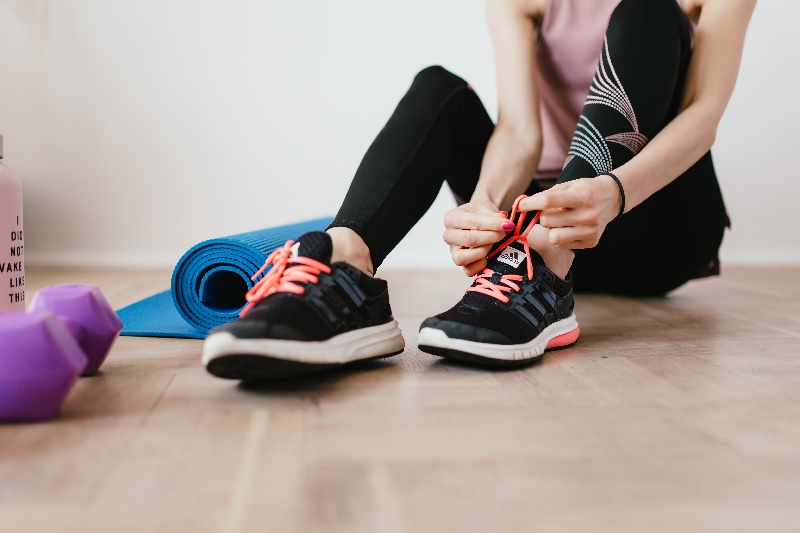According to new research from Manchester Metropolitan University, many women are still adjusting their workouts or avoiding physical activity entirely during their periods.
In a survey of 128 women in the UK on their physical activity status and menstrual cycle, 34 percent avoided physical activity during their period.
Almost all of them noted stigma and embarrassment at times when they felt uncomfortable or adjusted their normal routine for physical activity.
The 2016 UK Health Survey found that 15 percent fewer women than men aged 16 to 34 met the aerobic exercise guidelines. The researchers say that while the decreased physical activity in women is due to a number of factors, the effects of the menstrual cycle cannot be ruled out.
The lead researcher Dr. Petra Kolić, Lecturer in Sports Coaching at the Manchester Metropolitan Institute of Sport at Manchester Metropolitan University, said: “We really wanted to find out and understand women’s experiences of physical activity throughout the menstrual cycle.
“We already know that the menstrual cycle affects the daily life of many women, including going to school and work. Although many factors can result in lower levels of activity in women, it cannot be ruled out that the menstrual cycle is an important factor.
“This research shows that the experiences of the menstrual cycle are extremely unique to each individual, but that we still have a long way to go to support women and normalize open discussions about the menstrual cycle, particularly when it comes to physical activity.”
The researchers conducted follow-up interviews with 21 respondents to the questionnaire.
Findings, published in the Women in Sport and Physical Activity Journal, found that the greatest impact on women’s physical activity is due to symptoms such as bleeding, abdominal cramps, and headaches.
Women classified as avoiders of exercise on days of their periods reported longer and heavier periods and more days of tiredness and pain.
In addition to being physically unwell, many participants spoke of increased self-esteem and how they felt in their own skin – both in those who did not exercise and in those who continued to exercise.
Awkwardness and discomfort
Some women described how they chose their clothes carefully and felt consciously wearing certain items such as shorts, and most participants said they were concerned about being “found out” by others that they were on their period.
They talked about awkwardness at times and discomfort in certain environments, such as the gym. One participant classified as an exercise avoider said she knew a lot of people at the gym and feared that people would realize she was not in tip top shape and didn’t want to explain why, so everyone avoided the gym together.
Another, classified as a non-avoider, said, “When I’m in time, I don’t want anyone to find out that I’m not feeling a hundred [sic] Percent. I might complain to a colleague or a friend, but I would never admit – even if I called in sick – that it was a period of time. I would say I’m not fine. I think the expectation to continue as usual is always there. “
The women surveyed described the days of the period as limiting their ability to function as what they perceived to be “normal” for themselves. But some women said they had the expectation to keep going regardless of how they felt.
Dr. Kolić said, “This study suggests that menstrual events are complex, individual and personal for the women who experience them.
“Most women have not simply avoided all physical activity, but have adapted the physical activity to their different experiences during that time.
“This insight into the multiple effects the menstrual cycle could have on physical activity in women is relevant to field practitioners. It is important to create safe spaces for women who want to talk about how their physical comfort, personal thoughts, and social norms can affect physical activity. “
Researchers will use this research with practitioners to help normalize conversations about the menstrual cycle and physical activity during the menstrual cycle in women of all ages and ability.




